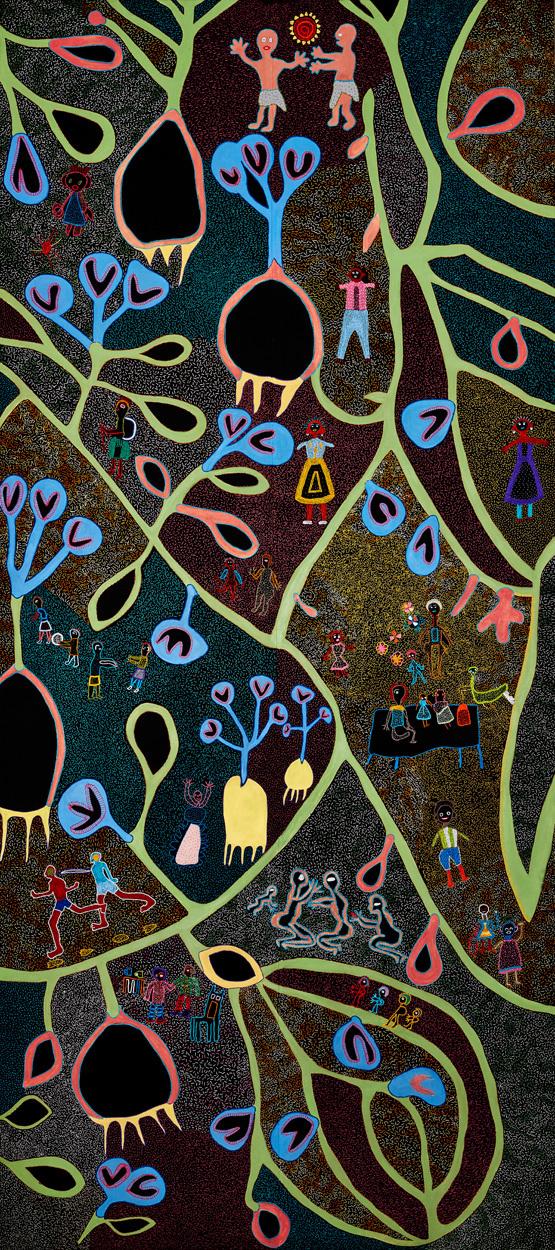
2 minute read
COMPETITION
Samsung is committed to using its resources to help young people develop the skills they need to succeed in the Fourth Industrial Revolution.
By: Lusanda Tamesi
Advertisement
Samsung, a renowned tech giant, is actively involved in promoting the significance of STEM (Science, Technology, Engineering, and Mathematics) in underserved communities. Despite being widely known for its focus on electronics, Samsung continues to invest in research and development, striving to lead technological advancements and innovation.
In 2010, Samsung initiated a global competition called "Solve for Tomorrow," which was officially launched in South Africa in January of this year.. By 2020, this programme had engaged over 1.5 million participants from more than 30 countries worldwide.
The competition aims to provide grade 10 and 11 students from underserved communities with a valuable opportunity to acquire skills while addressing challenges within their communities through STEM. The primary objective of the Solve for Tomorrow programme is to train young innovators for future STEM-related endeavours and nurture them into the leaders of tomorrow.
Samsung supports participating schools and students by offering resources, mentorship and technological tools. Students are tasked with identifying a local issue or problem and devising creative solutions using STEM principles. Throughout the process, Samsung mentors and educators provide guidance and support.
"This unique competition is our contribution to youth empowerment and skills creation in the information communication technology sector to help the country play a meaningful role in the Fourth Industrial Revolution (4IR)," said Hlubi Shivanda, Director: Business Operations and Innovation and Corporate Affairs at Samsung, adding: "It was designed to increase interest and proficiency in STEM and gives grade 10 and 11 learners from underserved communities an opportunity to gain invaluable skills while solving some of their communities' challenges."
A total of 51 schools across the country entered the competition. From that pool, 10 schools emerged as the top 10 finalists. These schools are in the Gauteng, Mpumalanga, Free State, KwaZulu-Natal, and Limpopo provinces and have now advanced to Phase Two of the programme. In this phase, they will tackle an emerging challenge and create tangible innovations to make a positive impact.
The Top 10 schools that have been selected include:
School Name Province
Mbilwi Secondary School Limpopo
Moyaneng Secondary School Limpopo
Phendukani High School KwaZulu-Natal
Adams College
KwaZulu-Natal
Umlazi Comprehensive Tech KwaZulu-Natal
Rebatla Thuto High School Free State
Lekgarietse High School Free State
Maphuthaditshaba Secondary School Mpumalanga
Phomolong Secondary School Gauteng
Buhlebemfundo Secondary School Gauteng
During Phase Two of the programme, the focus is on teaching learners a structured problem-solving process, fostering creative and critical thinking, and encouraging teamwork and communication skills. They engage in hands-on activities such as interview preparation, idea generation and prototyping. Learners are encouraged to take an active role in the process to acquire first-hand experience and develop the skills necessary for creating innovative solutions.
The finalists have until the end of September 2023 to finish building their prototypes. After that, they will present their projects to a group of judges in early October. They will compete for the top prize, R100 000 worth of STEM equipment for their school. The second and third-place schools will receive R50 000 and R30 000 worth of STEM equipment, respectively. In addition to these prizes, each learner in the top three teams will receive a Samsung device as an individual reward.






